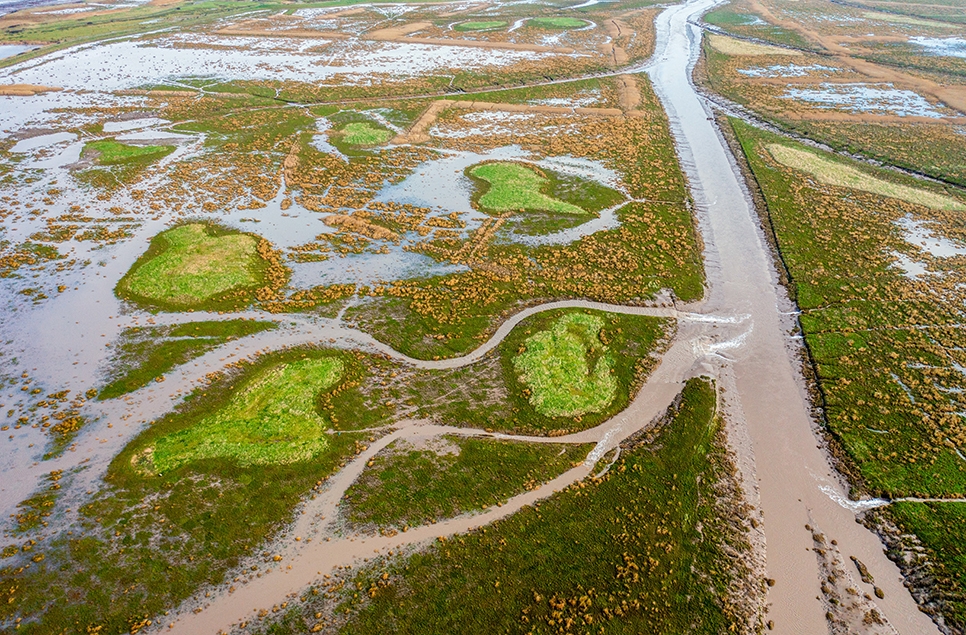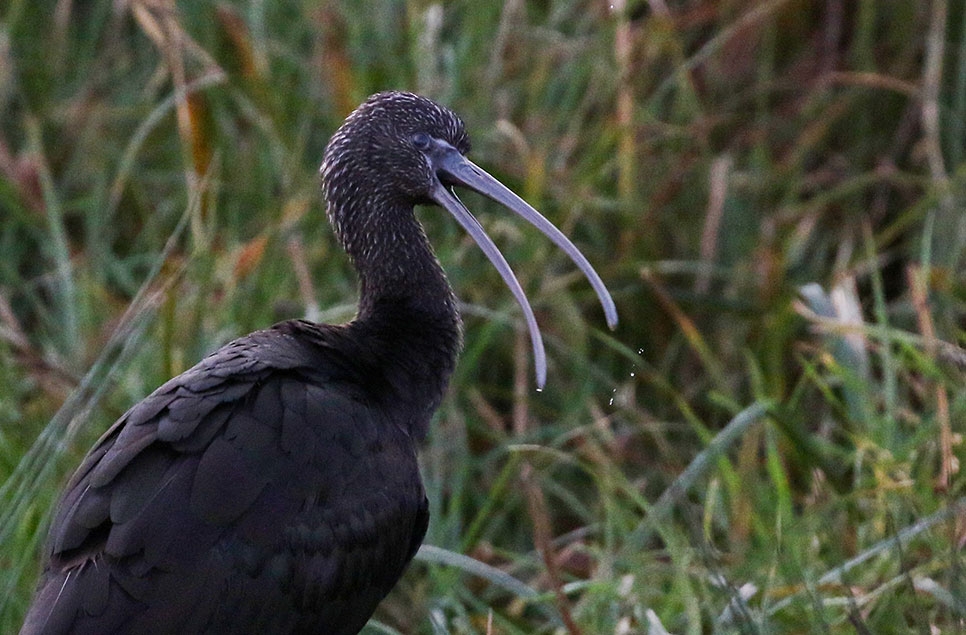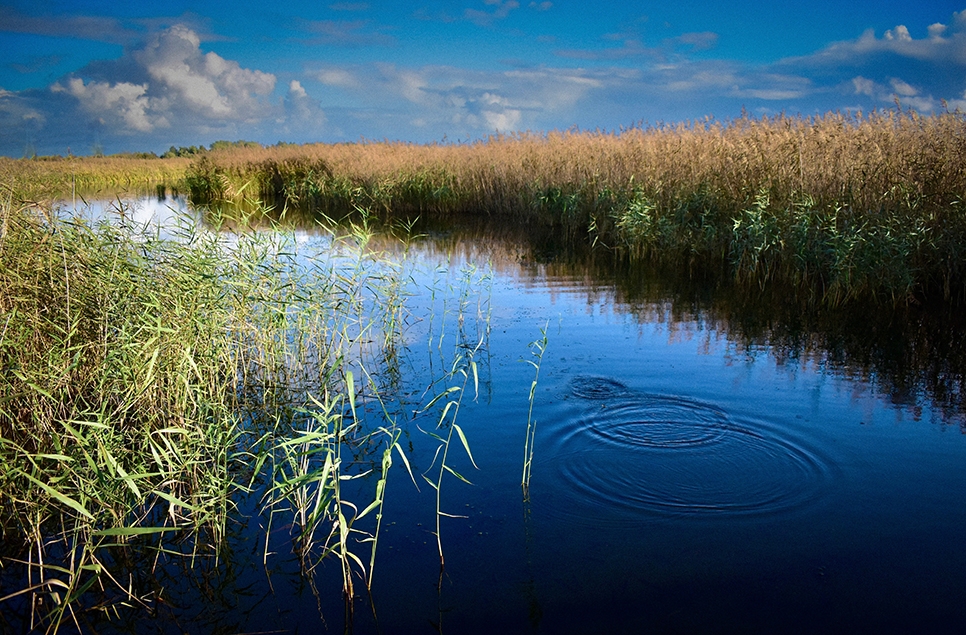Use your voice to secure a ban on lead ammunition
We believe it’s time to get rid of lead shot for good. Here WWT’s Ecosystem Health & Social Dimensions Manager, Julia Newth, tells us why it’s so important.
We believe it’s time to get rid of lead ammunition for good. If you agree, please take part in the public consultation (before 6 November) to make your voice heard.
Here WWT’s Ecosystem Health & Social Dimensions Manager, Julia Newth, tells us why it’s so important:
Why are WWT so active in the campaign to ban lead in ammunition?
Lead is a highly toxic substance which is why laws have been passed to remove it from petrol, pipes and paint. People may therefore be shocked to hear that more than 8,000 tonnes of lead ammunition continue to be fired out of guns for sports shooting and hunting every year in the UK, contaminating our countryside and posing a grave risk to wildlife and people.
Birds and mammals ingest lead ammunition directly when they forage on contaminated land or indirectly by consuming other animals that have been shot with lead. We risk our own health when we unwittingly dish up a meal of wild game that is laced with a poison. The World Health Organisation confirms that there is no safe level of lead - it harms virtually every system in the body.

As someone on the frontline of this, can you share some of your experiences of the impacts of using lead in gunshot?
The impacts are severe and distressing. Up to 100,000 waterbirds in the UK and one million in Europe die every year after ingesting poisonous lead shot. Those that survive face a nasty range of health impacts that affect behaviour, breeding and mobility. Sadly, my colleagues and I have encountered many lead poisoned birds over the years through our monitoring work, many of which have ended up on the post-mortem bench.
I’ll never forget the first time I saw a lead poisoned Bewick’s swan. An ordinarily graceful bird was reduced to a hunched, quivering mess, unable to lift its neck and with bruising on its wings as it tried to drag itself along the ground. There’s something particularly tragic about a bird having survived a 2,500 mile migration to our shores from the arctic, overcoming all the challenges that journey may bring, only to succumb to a cruel illness that is entirely avoidable. I don’t think anyone wants to see this.
How long has WWT been working towards this and what changes have been made so far?
WWT has been working on lead for two decades. During this time, we’ve studied thousands of birds to determine the scale of the problem and its deadly impacts, undertaken research that’s shown that the current (partial) regulations simply don’t work, and worked with hunters to understand how a transition away from lead ammunition can happen. We also work alongside experts from food retail and the shooting industry as well as UN bodies who are concerned about the harmful consequences of lead.
Last year, an EU-wide law came into place which banned lead shot in and around wetlands. This was a huge step towards making lead poisoning history and we’re very proud to have played a part in this historic win for health! This year, the Health & Safety Executive announced recommendations to further restrict the use of lead ammunition in Britain and this is now open for public consultation. Seeing countries like Denmark and the Netherlands successfully transition to non-toxic ammunition has set a great example. The travel of direction is clear and we’re hurtling towards a lead-free future!

Why are some people opposed to the idea of this ban?
Some hunters have concerns about the ballistic qualities of the non-toxic alternatives and how older guns may adapt. Fortunately, recent developments in these ammunition types have led to effective and available options, as various studies have shown. More and more hunters are now choosing to use non-toxic ammunition – they don’t want to be known as poisoners and would rather take a sustainable approach to shooting. I’m afraid that the most significant resistance to a ban on lead ammunition comes from the lead ammunition industry itself and associated gun lobbies. Lead ammunition is big business and while many manufacturers now stock non-toxic ammunition, some are reluctant to adapt to ensure a healthier planet for all. On a more optimistic note, despite this resistance from powerful actors, we’ve made great progress and there’s now huge momentum from all sectors (including shooting) to finally and completely phase out lead ammunition.
What are you most excited about by the prospect of this new legislation which is under consultation?
This is a critical moment for the UK – after many years of work, we’re on the cusp of banning lead ammunition and making lead poisoning, and all the suffering it brings, a thing of the past. Following the Health & Safety Executive’s recommendation to ban the use of lead ammunition, this proposal is now open for public consultation. With this, we can finally glimpse a healthier future, one with cleaner soils and waterways, healthier wildlife and healthier people!
Why is it important for people to add their voice?
We need your help to get this over the line! Please show your support for further restrictions on lead ammunition and make your voice count at this important moment.
You are being consulted on lead ammunition – have your say!
Maybe you have information or experiences relating to lead ammunition, shooting or lead poisoning. Or maybe you just agree with us - WWT has worked on this issue seeing all perspectives for decades.
WWT agrees with the report’s findings that the use of lead ammunition in both hunting and sports shooting pollutes the environment and presents a serious and unacceptable - yet avoidable - risk to wildlife, domestic animals and people. We are very concerned about the harm lead presents to health.
- We agree that these risks are not adequately controlled at the moment and further regulatory action is needed.
- We agree that the sale and use of lead ammunition (both shot and bullets) should be fully restricted in Great Britain.
- We think a ban on possession (as well as sale and use) of lead ammunition seems like a practical and sensible approach and should be considered to ensure good compliance with the restriction recommendations.
- We support a quick transition away from lead ammunition – a period of 18 months rather than 5 years which is too long and will cause more unnecessary harm and suffering.
If you agree too, or have other perspectives – please make your voice heard!
To submit your views on the report (formally named “Annex 15 restriction dossier”) all you have to do is click on this link and:
- Add your details on Page 1.
- Add your comments in the section ‘General comments’ on Page 2
- Click on ‘continue’ until you reach Page 9 where you can submit your response.
If you would also like to answer the specific questions on Pages 3-8, please do so. Note that there is no expectation to answer all of these questions – you can simply add your comments to the General Comments section instead.
Have your say
Q&A by Julia Newth
Ecosystem Health & Social Dimensions Manager



